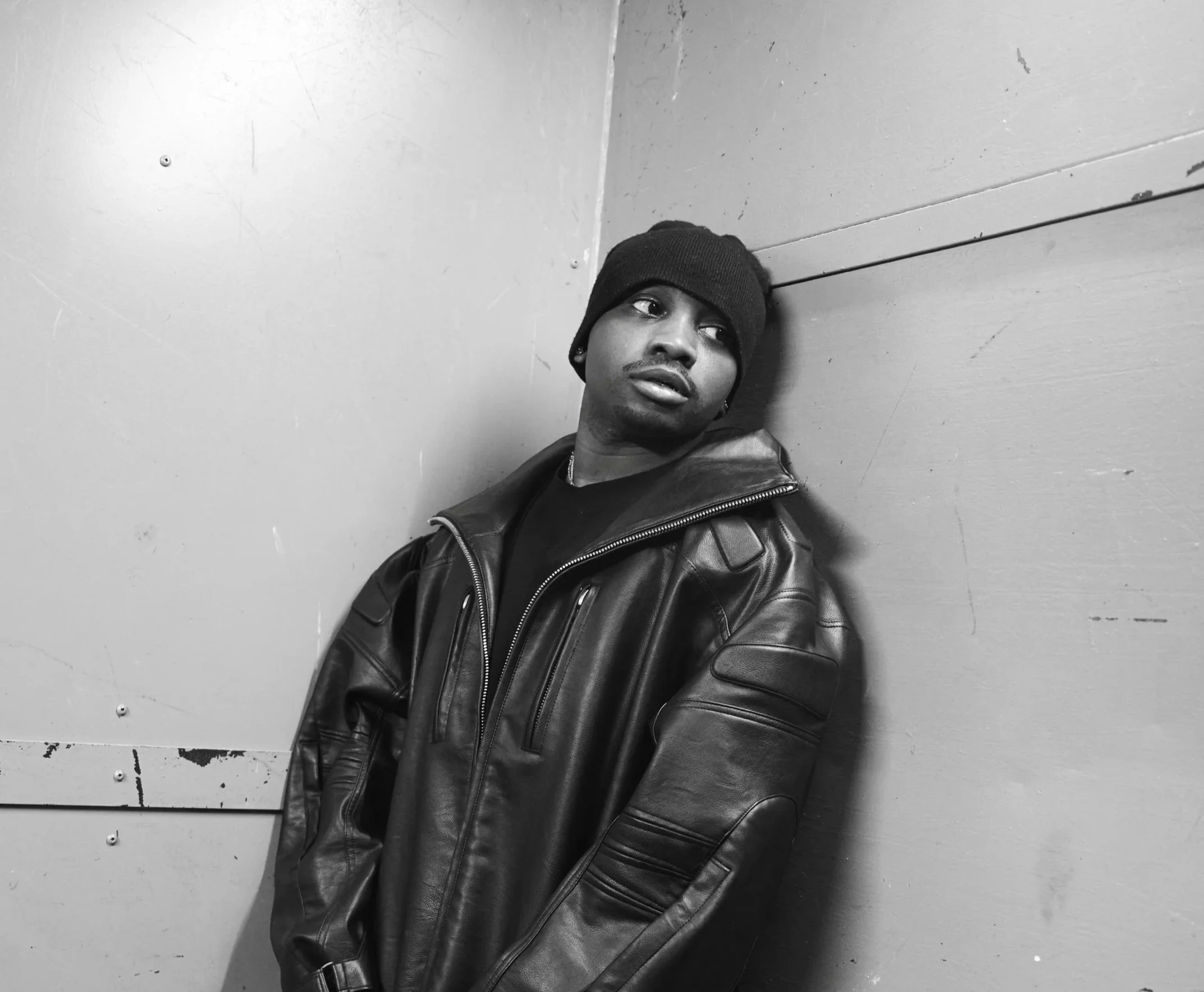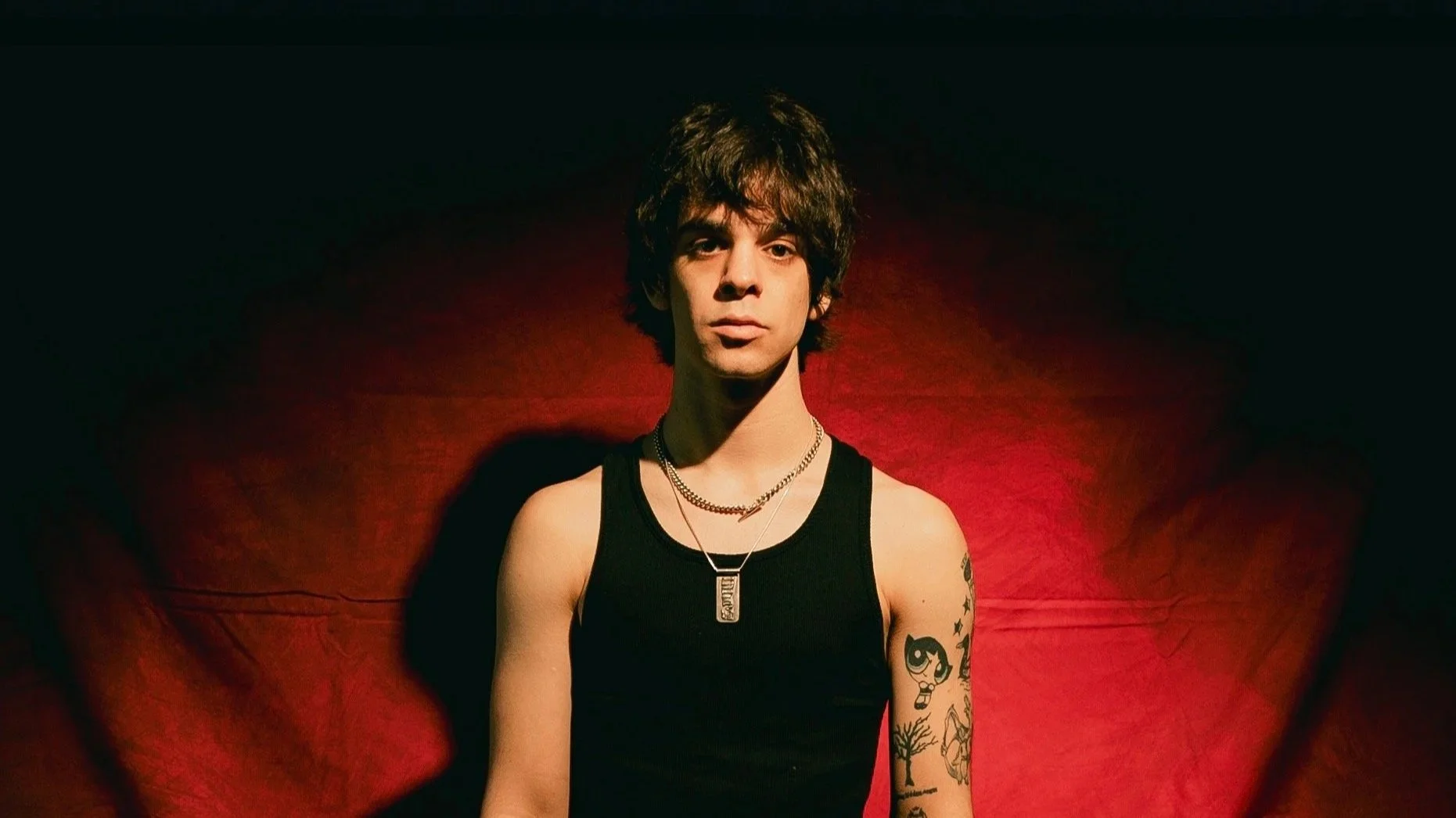RZR Star David Bianchi on His New Sci-Fi Project, Catalyst
David Bianchi, an actor, producer, screenwriter, and creator, has made significant strides in the entertainment industry with his sci-fi-tinted body of work. Known for his innovative contributions to projects like The Rookie, Resident Alien, and even voice work in the influential game Cyberpunk 2077, Bianchi has spent years continuing to impress audiences with projects that push creative boundaries.
One of his most notable achievements so far is the Emmy-nominated 2024 series RZR, a cyberpunk-inspired narrative set in a dystopian world dominated by neural implants and black-market crime. The series, featuring a stellar cast including Mena Suvari and Danny Trejo, delves into the complexities of technology and its impact on society. Bianchi's character, Grimm, navigates this high-stakes environment, bringing to life a world where the lines between humanity and technology blur. And in just one season, RZR has been repeatedly praised for its thought-provoking themes and striking visual aesthetic, drawing comparisons to acclaimed series like Black Mirror and Mr. Robot.
In addition to RZR, Bianchi stars in the newly released independent film Catalyst, directed by Chris Folkens. This grounded sci-fi thriller revolves around seven strangers who wake up surrounded by an electrical force field, forced to confront their darkest truths to gain freedom. The film's unique production process, with largely improvised performances and a multi-year development period, showcases Bianchi's dedication to his craft. In fact, the film has already garnered multiple accolades on the indie-circuit, further solidifying Bianchi's reputation as a dedicated and talented artist.
Congratulations on the release of Catalyst. What drew you to this project, and how did you approach your role in the film?
David Bianchi: I have been working with writer/director Christopher Folkens for many years before Catalyst. He invited me to produce and co-star in the project back in 2017. At the time I had just completed production on another feature film, and I was emotionally exhausted. I didn't want to produce anything new, but Chris convinced me that this is going to be something exciting. It turns out it absolutely was. I was able to deliver a performance that under no other circumstance would I ever be able to deliver, because films are never shot this way. The experiment appealed to me. In hindsight, had I known it was going to take nine years I would have absolutely said no [laughs]. But once you start you must finish, regardless of the circumstances that happen in between. It’s very rewarding to know that despite all the obstacles that stood in our way we saw this thing all the way through. That says a lot about who we are as humans and as artists.
The film was shot through an improv style over the course of several years. How did this unique filming process impact your performance and the overall storytelling?
David Bianchi: The project started as an experimental film with one day of full production of entirely improvised dialogue. The entire film is about 50% improvisation, the rest was scripted. The improvisation was the most intense experiences I've had as an actor, and one of the most unique experiences ever as a producer. We were able to create something really unique, but because of the experimental way that we shot it, it took many, many years to finally accomplish it. We went through different iterations of the script that was informed by the improvised dialogue and shot it over the course of five years on eight different production days.
Given its lengthy production period, what was probably the biggest obstacle you faced during the production of Catalyst?
David Bianchi: Keeping each other on track was very challenging. Constantly having the necessary drive to get it down is hard. Life is always ebbing and flowing and so, when you're producing something for almost a decade, what's very challenging is maintaining the right amount of energy to complete the task. From a logistical perspective, we had to remind our cast to stay consistent. We would ask them ‘How long is your hair?’ ‘Have you shaved?’ ‘How much weight are you gaining? Or have you lost weight?’ In the film these sequences take place over a week or two, even though in real life we shot it over so many years, the look of everyone had to remain constant to make it match in the edit.
Catalyst tackles themes of humanity and redemption. Though, from your perspective, what would you say was the film’s core theme?
David Bianchi: The core of the film is how can we become better people and find ways to communicate instead of judging and living in fear of people and circumstances that we don't understand. The film follows seven men that all have dark pasts and every reason to hate each other inside of this room but if they attack each other, they all perish. When you can't attack someone, your only option is to shut down or communicate. Communication will eventually break down fear, because anger and violence are a side effect of fear, and communication calms fear (if you're willing to listen long enough). We hope that audiences look inside themselves when they watch this film and discover something about themselves to make their lives better.
The film has already received numerous accolades, including Best Feature Film and Best Cinematography during its festival circuit. Is there something about this film that makes you particularly proud to be a part of this ensemble team?
David Bianchi: I'm very proud of the work that we did. The team we're able to assemble is world-class, (not just the actors) but the entire team behind the camera is a village of technicians, that are incredible at what they do. Our cinematographers are exceptional, and our production team gave it everything that they had. That's all that you can ask for an independent film. When resources are so lean, you really need to surround yourself with humans that have the desire to go above and beyond, and we had exactly that every step of the way. The awards and positive reviews of our work are really a side effect of the talent that worked on the movie.










